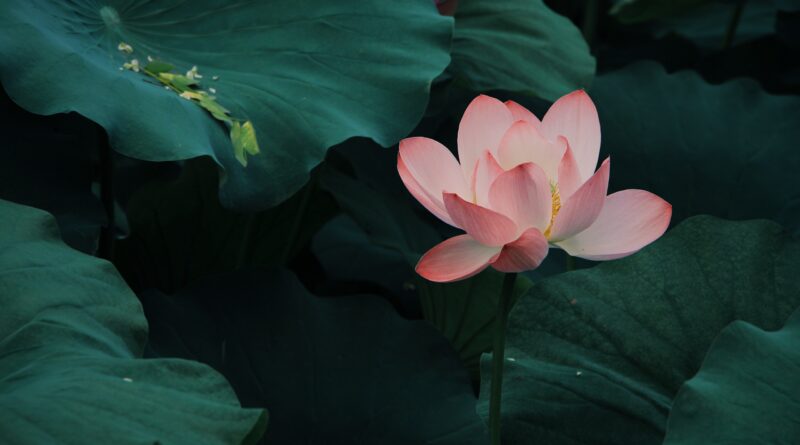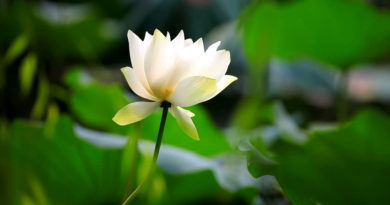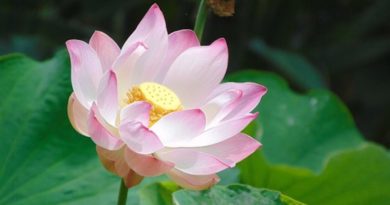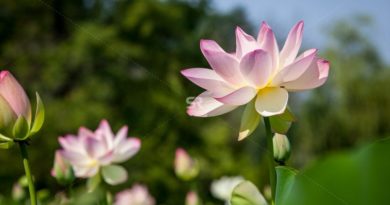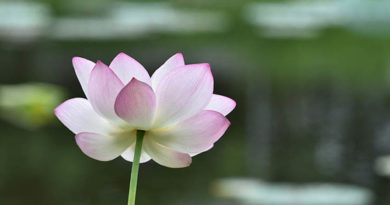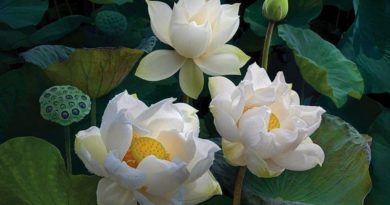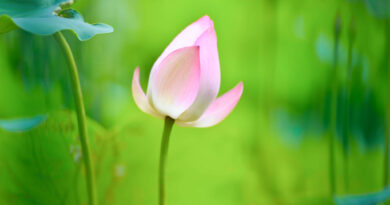023. Dīghacārikavaggo –– Going On Long Tours
Aṅguttara Nikāya
023. Dīghacārikavaggo –– Going on long tours
1. Paṭhamadīghacārikasuttaṃ –– The first on long tours
023.01. Bhikkhus, these five are the dangers for those engaged in long non-stop tours. What five?
Does not get a chance to hear the not heard, does not get a chance to practise the heard, does not become confident of the heard, is attacked by serious illnesses and he has no friends. Bhikkhus, these five are the dangers for those engaged in long non-stop tours.
Bhikkhus, these five are the benefits for those engaged in their usual tours. What five?
Gets a chance to hear the not heard, gets a chance to practise the heard, becomes confident of the heard, is not attacked by serious illnesses and he has friends. Bhikkhus, these five are the benefits for those engaged in their usual tours.
2. Ḍutiyadīghacārikasuttaṃ –– The second on long tours
023.01. Bhikkhus, these five are the dangers for those engaged in long non-stop tours. What five?
Does not attain the not attained, the attained decreases, a certain one does not become confident of the heard, is attacked by serious illnesses and he has no friends. Bhikkhus, these five are the dangers for those engaged in long non-stop tours.
Bhikkhus, these five are the benefits for those engaged in their usual tours. What five?
Attains to the not yet attained, the attained does not deteriorate, a certain one becomes confident of the heard, is not attacked by serious illnesses and he has friends. Bhikkhus, these five are the benefits for those engaged in their usual tours.
3. Atinivāsasuttaṃ –– Extensive dwellings
023.03. Bhikkhus, these five are the dangers for living in extensive dwellings. What five?
Has too many household articles, accumulates household articles, has much requisites when ill and accumulates them, has many duties to be done, householders and the gone forth live associating each other attending to them as they come. Those who go away from the monastery go with desires. Bhikkhus, these five are the dangers for having extensive dwellings.
Bhikkhus, these five are the benefits for having a suitable dwelling. What five?
Does not have too many household articles, does not accumulate household articles, does not have much requisites when ill and does not accumulates them, has few duties, householders and the gone forth, live associating each other attending to them as they come. Those who go away from the monastery go without desires. Bhikkhus, these five are the benefits for having a suitable dwelling.
4. Maccharisuttaṃ –– Selfishness
023.04. Bhikkhus, these five are the dangers for dwelling in extensive dwellings. What five?
Becomes selfish for dwellings, for families, for gains, for beauty and selfish for the Teaching Bhikkhus, these five are the dangers for dwelling in extensive dwellings.
Bhikkhus, these five are the benefits for dwelling in a suitable dwelling. What five?
Is not selfish for dwellings, for families, for gains, for beauty and is not selfish for the Teaching Bhikkhus, these five are the benefits for dwelling in suitable dwellings.
5. Paṭhamakulūpakasuttaṃ –– First on frequenting families
023.05. Bhikkhus, these five are the dangers for frequenting families. What five?
Behaves in uninvited places, falls to the habit of sitting secretly, sitting in covered seats, falls to the habit of speaking more than five or six words to a woman, abides with many sensual thoughts. Bhikkhus, these five are the dangers for frequenting families.
6. Dutiyakulūpakasuttaṃ –– Second on frequenting families
023.06. Bhikkhus, these five are the dangers for frequenting families, for associating families. What five?
The bhikkhu sees women frequently, with frequent seeing there is association. With association there is confidence. With confidence there is approaching and when the mind descends this should be expected. – Either the holy life is lived without attachment or he becoms defiled on account of something or he gives up the holy life and comes to the lower life Bhikkhus, these five are the dangers for frequenting families, for associating families.
7. Bhogasuttaṃ –– Wealth
023.07. Bhikkhus, these five are the dangers for wealth. What five?
Wealth is nothing uncommon to fire, to water, to the king, to robbers and to unwanted inheritors Bhikkhus, these five are the dangers for wealth.
Bhikkhus, these five are the benefits for wealth. What five?
On account of wealth one pleases the self and maintains the self pleasantly. On account of wealth one pleases his mother and father and maintains them pleasantly. On account of wealth one pleases his wife and childred and maintains them pleasantly. On account of wealth one pleases his friends and co-associates and maintains them pleasantly. On account of wealth one offers the highest gifts to recluses and Brahmins which conduces to heavenly bliss and heavenly birth. Bhikkhus, these five are the benefits for wealth.
8. Ussūrabhattasuttaṃ –– Eating after midday
023.08. Bhikkhus, these five are the dangers for families eating after the midday. What five?
Those guests who need hospitality are not offered food in time. The gods awaiting merit are not offered merit in time. Those recluses and Brahmins who take one meal per day and avoid food at night and untimely hours are not offered food at the right time. Slaves and workmen work hungrily, food eaten late does not absorb all the nourishment. Bhikkhus, these five are the dangers for families eating after the midday.
Bhikkhus, these five are the benefits for families eating at the right time. What five?
Those guests who need hospitality are offered food in time. The gods awaiting merit are offered merit in time. Those recluses and Brahmins who take one meal per day and avoid food at night and untimely hours are offered food at the right time. Slaves and workmen do not work hungrily, food eaten at the right time absorb all the nourishment. Bhikkhus, these five are the benefits for families eating at the right time.
9. Paṭhamakaṇhasappasuttaṃ –– First on the poisonous black snake
023.09. Bhikkhus, these five fears are from black poisonous snakes. What five?
They are impure, give a bad smell, are timid, arouse fear and pretend friendship.
Bhikkhus, these five fears are from black poisonous snakes.
In the same manner bhikkhus, these five fears are from women. what five?
They are impure, give a bad smell, are timid, arouse fear and pretend friendship.
Bhikkhus, these five fears are from women.
10. Dutiyakaṇhasappasuttaṃ –– Second on the poisonous black snake
023.10. Bhikkhus, these five fears are from black poisonous snakes. What five?
They are hateful, bear grudge, are poisonous, live in difficult circumstances and pretend friendship.
Bhikkhus, these five fears are from black poisonous snakes.
In the same manner bhikkhus, these five fears are from women. what five?
They are hateful, bear grudge, are poisonous, live in difficult circumstances and pretend friendship. Bhikkhus, this is women’s poison: For most of the time women are passionate and lustful. This is their life in difficult circumstances. -For most of the time women slander. This is their pretence of friendship: For most of the time women overdo in their behavioural patterns. Bhikkhus, these five fears are from women.

